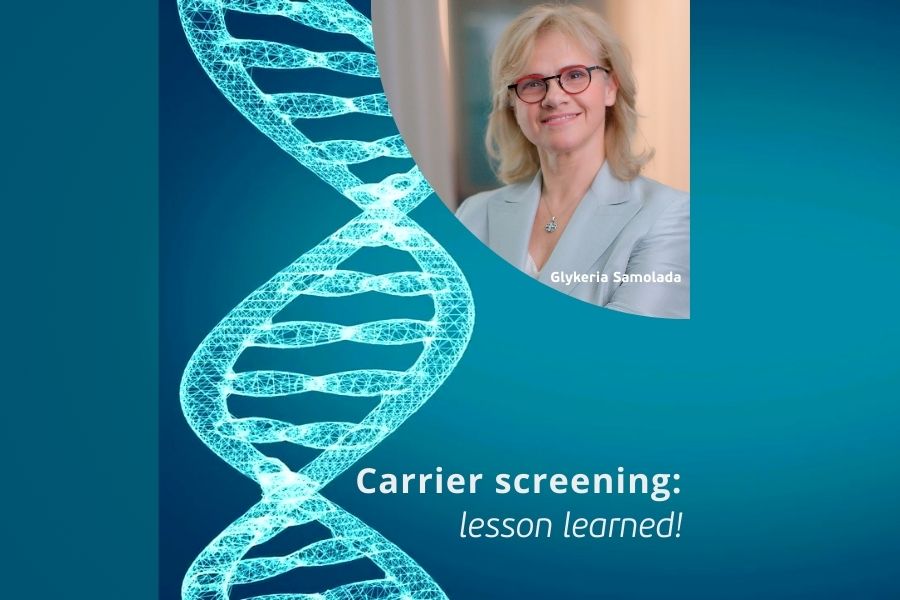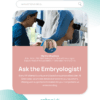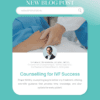
Glykeria Samolada, BSc, MSc, Biologist, Cytogeneticist, ErGenetic Counsellor
One in nine people who undergo expanded carrier screening genetic test before having children may also be informed about their own health risks!! Carrier screening is done to find out if one of the genetic parents planning or about to have children is, without knowing it and without having any symptoms, mutation carrier for a gene linked to a serious genetic disease. Couples do such genetic testing to see if there is a chance of passing on a genetic condition (such as cystic fibrosis, hemoglobinopathies, deafness) to their children.
A study* presented at the 42nd Annual US National Society of Genetic Counselors (NSGC) showed that one in nine may also learn that they also have a mutation in a gene that increases their own risk for a health issue, such as an increased risk of cancer or inflammatory disease. Such results may also shed light on different personal health “risks” for those being tested. Couples often undergo carrier screening thinking it will only give them information about genetic risks for children, however, they often learn something related to their health, mentioned at the study. As the number of genes screened on carrier screening panels increases, more and more genes are included that have implications for the individuals being screened (e.g., increased risk for certain cancers).
The researchers analyzed 1,581 cases of partners in whom a mutation was identified in at least one or more of 500 targeted genes. They found that 183 (11.5%) of these people had a significant mutation in a health-related gene.
The most common conditions involved:
* Increased risk of autoimmune disease
* Susceptibility to anaesthetic agents (pseudocholinesterase deficiency)
* Toxic response to chemotherapy drugs (dihydropyrimidine dehydrogenase deficiency)
* Risk of premature ovarian failure or ataxia associated with fragile X
Almost 20 of them, had specific pathogenic mutations in 6 genes associated with an intermediate risk of developing various types of cancer (ATM, BLM, FANCL, BRIP1, FANCC, NBN).
Genetic Counselors play a critical role in discussing the risks, benefits and limitations of screening with couples. Thus, they can take informed decisions and be better prepared for the range of results they may receive, BEFORE the test.
These data highlight the critical role that Genetic Counselors also play in educating health care professionals about carrier screening testing, as most of couples undergoing expanded carrier screening, do not speak with a Genetic Counselor before undergoing any testing.
The role of Genetic Counseling before and after carrier screening when planning a pregnancy is recognized and critical. Providing Genetic Counselling by specialists with appropriate training and certification, is couples right as also a recommendation for good fertility practice according to ACOG.
*ASHG Annual Meeting, November 1-5, 2023, Washington, DC
# https://www.acog.org/clinical/clinical-guidance/committee-opinion/articles/2017/03/carrier-screening-for-genetic-conditions





